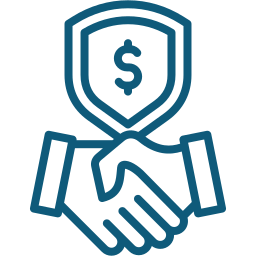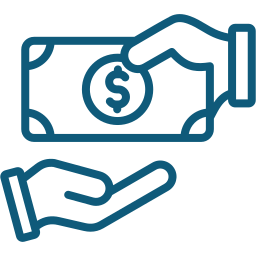We are processing your application, please wait for a moment.
![]() We Use 2048-bit SSL Technology to encrypt your data
We Use 2048-bit SSL Technology to encrypt your data








Quick Online Process
Only takes minutes

Fast Online Decision
Receive a decision in minutes

Same-Day Deposit
Up to $5,000 in your account in 24 hours*
Home | FAQs | Terms of Use | Rates & Fees | Disclaimer | Privacy Policy | Lending Policy | Contact
North Carolina
Navigating Cash Advance North Carolina: What You Need to Know
Cash advance loans, commonly referred to as payday loans, are subject to state-level regulation in North Carolina. The state has implemented specific legislation to safeguard consumers against exploitative lending practices. North Carolina law prohibits payday lending, making it unlawful for lenders to provide short-term loans with high interest rates.
The legal framework governing payday lending in the state is outlined in the North Carolina General Statutes, specifically Chapter 53, Article 15, and Chapter 75, Article 2A. The North Carolina Attorney General’s Office is responsible for enforcing the state’s payday lending laws and protecting consumers from unfair and deceptive lending practices. This office provides educational resources and information to assist consumers in understanding their rights and making well-informed financial decisions.
It is crucial for North Carolina residents to be knowledgeable about the state’s payday lending laws and regulations to avoid becoming victims of illegal lending activities.
Key Takeaways
- Cash advance North Carolina laws and regulations are designed to protect consumers from predatory lending practices and high interest rates.
- Personal loans typically have lower interest rates and longer repayment terms compared to payday loans, making them a more affordable option for borrowing money.
- Online loans offer convenience and quick access to funds, but they also come with the risk of falling victim to scams and fraudulent lenders.
- Qualifying for a payday loan in North Carolina typically requires a steady source of income, a valid ID, and an active checking account.
- The process of obtaining a payday advance loan involves filling out an application, providing necessary documentation, and receiving the funds directly into your bank account.
The Difference Between Personal Loans and Payday Loans
Personal loans and payday loans are two different types of financial products that serve different purposes and have distinct characteristics. Personal loans are typically installment loans that are repaid over a fixed period of time, usually with a fixed interest rate. These loans are often used for larger expenses such as home improvements, debt consolidation, or major purchases.
Personal loans are usually obtained through banks, credit unions, or online lenders and require a credit check and proof of income. On the other hand, payday loans are short-term, high-interest loans that are typically due on the borrower’s next payday. These loans are designed to provide quick cash to cover unexpected expenses or financial emergencies.
Payday loans are often obtained without a credit check and require minimal documentation, making them accessible to borrowers with poor credit or limited financial resources. However, payday loans come with high fees and interest rates, making them a costly form of borrowing.
Exploring the Benefits and Risks of Online Loans
Online loans have become increasingly popular in recent years, offering convenience and accessibility to borrowers. There are several benefits to obtaining a loan online, including the ability to compare multiple lenders, apply from the comfort of your home, and receive funds quickly. Online lenders also often have less stringent requirements for approval, making it easier for borrowers with poor credit to qualify for a loan.
However, there are also risks associated with online loans, including the potential for predatory lending practices and fraud. It is important for borrowers to research lenders thoroughly and ensure they are reputable and licensed in their state. Additionally, online loans may come with higher interest rates and fees compared to traditional lenders, so borrowers should carefully consider the cost of borrowing before taking out a loan online.
How to Qualify for a Payday Loan in North Carolina
| Qualification Criteria | Description |
|---|---|
| Age | Must be at least 18 years old |
| Income | Must have a steady source of income |
| Residency | Must be a resident of North Carolina |
| Bank Account | Must have an active bank account |
| Identification | Must provide a valid ID |
Since payday lending is illegal in North Carolina, residents are unable to qualify for traditional payday loans in the state. However, there may be alternative options available for short-term borrowing, such as installment loans or lines of credit from licensed lenders. These alternative products may have different eligibility requirements and terms compared to traditional payday loans, so it is important for borrowers to research their options carefully.
Borrowers in North Carolina may also consider seeking assistance from local nonprofit organizations or government agencies that offer financial assistance programs or low-cost loan options. These resources can provide support to individuals facing financial hardship and help them avoid the high costs associated with payday loans.
The Process of Obtaining a Payday Advance Loan
While traditional payday loans are not available in North Carolina due to state regulations, the process of obtaining a payday advance loan typically involves applying online or in-person at a payday lending store. Borrowers are required to provide proof of income, a valid ID, and a post-dated check or authorization for electronic withdrawal from their bank account. Once approved, borrowers receive the funds immediately or within one business day.
However, since payday lending is illegal in North Carolina, residents should be cautious of any lenders offering payday loans in the state. It is important for consumers to be aware of the laws and regulations surrounding payday lending in their state and avoid falling victim to illegal lending practices.
Tips for Responsible Borrowing and Repayment
When considering borrowing money through any type of loan product, it is important for consumers to practice responsible borrowing and repayment habits. This includes carefully evaluating the need for the loan, comparing multiple lenders to find the best terms and rates, and ensuring that the loan can be repaid on time without causing financial strain. Additionally, borrowers should be aware of their rights as consumers and understand the terms and conditions of the loan before signing any agreements.
It is important to borrow only what is necessary and avoid taking on more debt than can be comfortably repaid. If facing difficulty with repayment, borrowers should communicate with their lender to explore options for managing the loan responsibly.
Alternatives to Payday Loans in North Carolina
Since traditional payday loans are illegal in North Carolina, residents may consider alternative options for short-term borrowing. This may include seeking assistance from local nonprofit organizations or government agencies that offer financial assistance programs or low-cost loan options. Additionally, individuals facing financial hardship may explore other forms of credit such as credit cards, personal loans from banks or credit unions, or borrowing from friends or family.
It is important for consumers to carefully consider the costs and terms associated with any form of borrowing and explore all available options before making a decision. By researching alternative sources of funding and seeking financial counseling if needed, individuals can avoid the high costs and risks associated with traditional payday loans.
FAQs
What is a cash advance?
A cash advance is a short-term loan that is typically repaid on the borrower’s next payday. It is designed to provide quick access to funds for individuals who need immediate cash for unexpected expenses.
Is it legal to get a cash advance in North Carolina?
No, it is illegal to get a cash advance in North Carolina. The state has laws that prohibit payday lending, including cash advances.
What are the alternatives to cash advances in North Carolina?
Some alternatives to cash advances in North Carolina include seeking assistance from family or friends, negotiating payment plans with creditors, applying for a personal loan from a bank or credit union, or exploring other forms of short-term financing.
What are the consequences of getting a cash advance in North Carolina?
If an individual obtains a cash advance in North Carolina, they may face legal consequences, including fines and penalties. Additionally, they may be subject to high interest rates and fees from unlicensed lenders.
Where can I find more information about cash advances in North Carolina?
For more information about cash advances and payday lending in North Carolina, individuals can contact the North Carolina Attorney General’s Office or visit the official website of the North Carolina Department of Justice.
